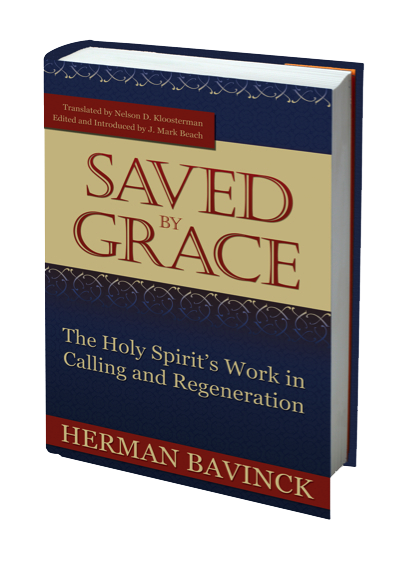
Herman Bavinck
Reviewed by: J. V. Fesko
Saved by Grace: The Holy Spirit's Work in Calling and Regeneration, by Herman Bavinck (1903). Translated by Nelson D. Kloosterman. Edited by J. Mark Beach. Reprinted by Reformation Heritage Books, 2008. Hardback, 240 pages, list price $30.00. Reviewed by OP pastor J. V. Fesko.
For the better part of the twentieth century, the work of one of the Reformed world's most gifted theologians, Herman Bavinck (1854–1921), was locked away in the Dutch tongue. A few of his works were available in English, but it was not until the publication of his four-volume Reformed Dogmatics that a new reading audience gained access to his thought. The old adage—when it rains, it pours—is applicable in a positive way in this case. Reformation Heritage Books has published one of Bavinck's lesser-known but important works, which deals with the work of the Holy Spirit in effectual calling and regeneration. The book was written as a controversy brewed regarding regeneration and baptism. The editor describes Bavinck's work as a "mildly 'anti-Kuyperian' work," as Abraham Kuyper's views are largely at issue.
First, Bavinck deals with the relationship between election and the order of salvation, particularly justification. Bavinck addresses Kuyper's view on predestination (supralapsarianism) and how it leads him to the erroneous conclusion that believers are justified in eternity past. Believers are chosen by God in eternity, but they are justified in history, when they profess their faith in Christ.
Second, Bavinck discusses the relationship between the immediate work of the Spirit and the means of grace. He explains that the Holy Spirit works immediately and directly upon the heart of a person in salvation, but that this work does not preclude the use of means (word and sacraments). He also explains that God "addresses us in the external call through law and gospel" (p. 146).
Third, he addresses the question of why the church baptizes its infants. Many in the Reformed church assume that the church baptizes covenant children because they are presumed to be regenerate. However, Bavinck explains that the covenant of grace is more foundational, in that it precedes a person's faith. In other words, the church baptizes infants because of the covenant promise, not because of their presumed regeneration.
This is a very helpful treatment of the subject of regeneration and related matters. Bavinck is deeply aware of the history of the doctrine and interacts with a number of lesser-known but important Reformed luminaries from the sixteenth and seventeenth centuries. Also, the editor's introduction is well written and helps the reader understand Bavinck's work in its historical context. The editor's footnotes scattered throughout the work are also helpful. All in all, this work is a wonderful addition to the Bavinck corpus in English.
November 23, 2025
November 16, 2025
November 09, 2025
November 02, 2025
October 26, 2025
October 19, 2025
October 05, 2025
Raising Sexually Faithful Kids and
Parenting Boys and Girls in a Gender-Confused World
© 2025 The Orthodox Presbyterian Church